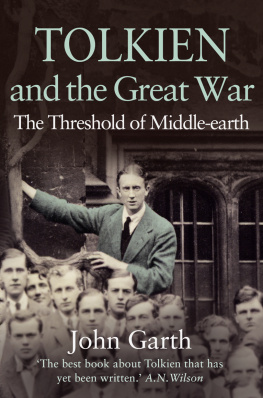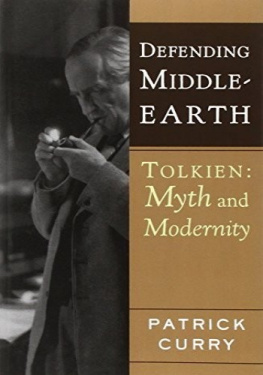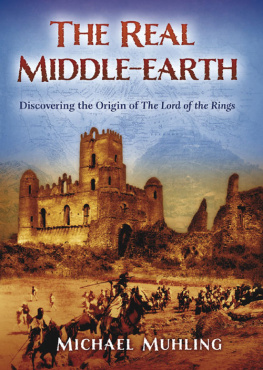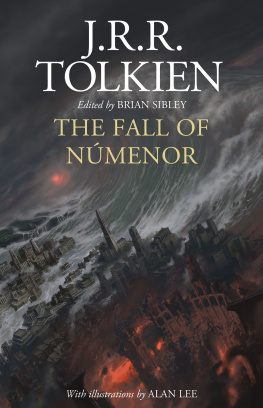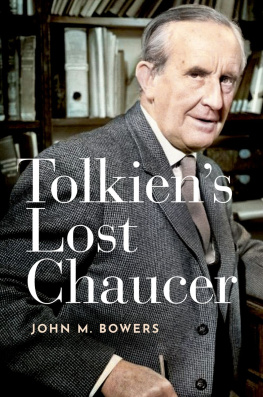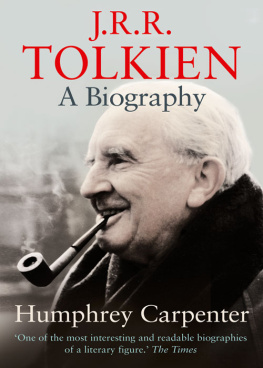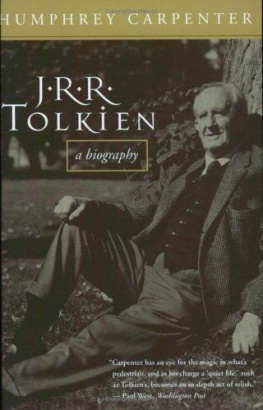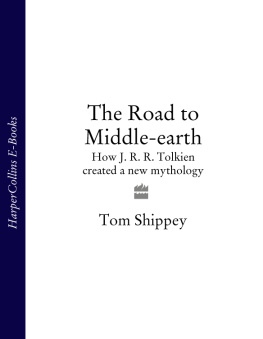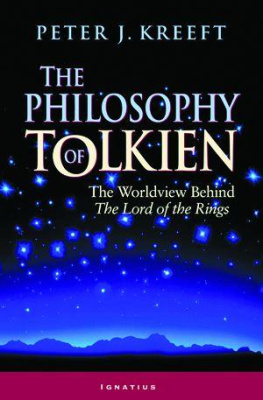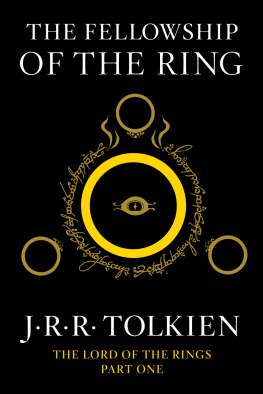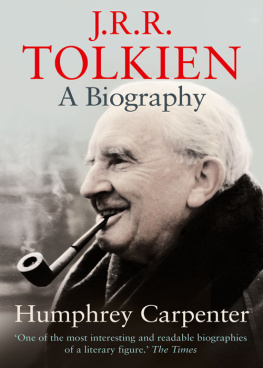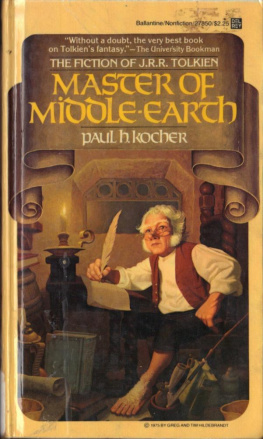In memory of
John Ronald Reuel Tolkien, 1892-1973
Christopher Luke Wiseman, 1893-1987
Robert Quilter Gilson, 1893-1916
Geoffrey Bache Smith, 1894-1916
TCBS
Tolkien on the Somme, 1916
6 JuneTolkien arrives in France.
28 JuneHe joins 11th Lancashire Fusiliers.
1 JulyBattle of the Somme begins.
3 JulyTolkien reaches the frontline area.
6-8 JulyWith G. B. Smith in Bouzincourt.
14-16 JulyTolkien takes part in attack on Ovillers.
17 JulyHe learns of Rob Gilsons death.
21 JulyHe becomes battalion signal officer.
24-30 JulyTrenches at Auchonvillers.
7-10 AugustTrenches east of Colincamps.
16-23 AugustSignal officers course, Acheux.
22 AugustTolkien sees Smith for the last time.
24-26 AugustTrenches, Thiepval Wood.
28 August-1 SeptemberTrenches east of Leipzig Salient.
1-5 SeptemberSupport trenches near Ovillers.
12-24 SeptemberTraining, Franqueville.
27-29 SeptemberAction at Thiepval Wood.
6-12 OctoberBattalion HQ, Ferme de Mouquet.
13-16 OctoberHeadquarters, Zollern Redoubt.
17-20 OctoberOvillers Post and Hessian Trench.
21-22 OctoberCapture of Regina Trench.
27 OctoberTolkien reports sick at Beauval.
28 OctoberHe leaves his service battalion.
29 October-7 NovemberIn hospital, Le Touquet.
8 NovemberReturns to England on Asturias.
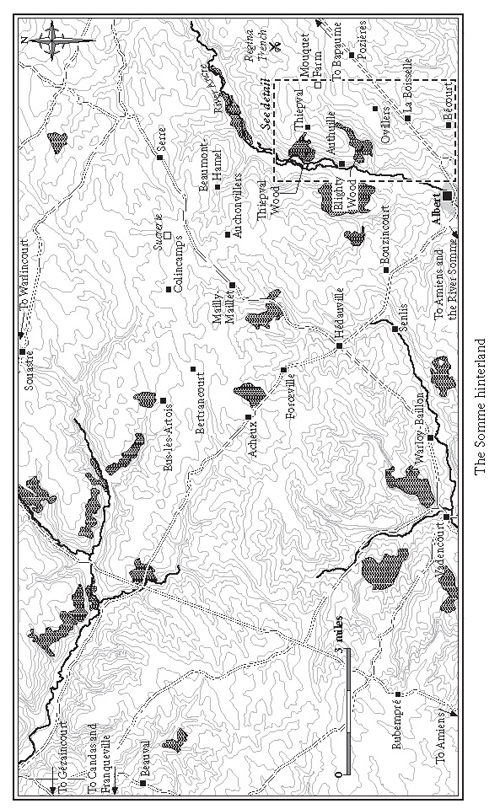
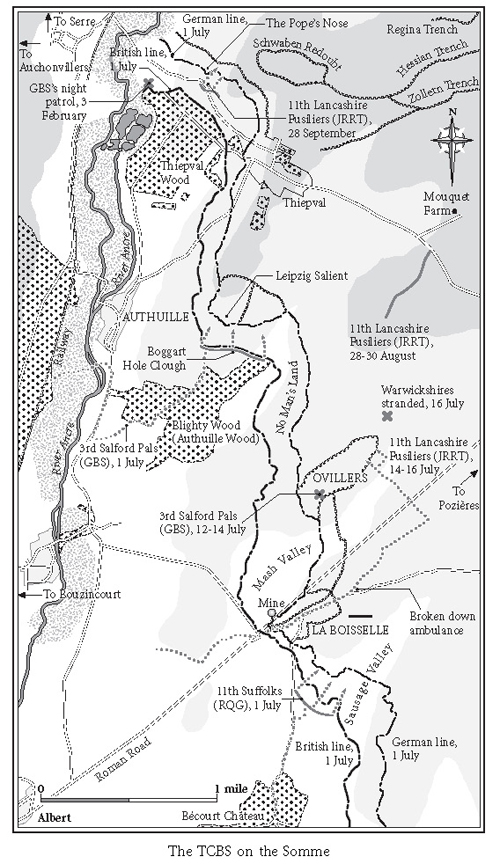
This biographical study arose from a single observation: how strange it is that J. R. R. Tolkien should have embarked upon his monumental mythology in the midst of the First World War, the crisis of disenchantment that shaped the modern era.
It recounts his life and creative endeavours during the years 1914-18, from his initial excursions into his first invented Elvish language as a final-year undergraduate at Oxford, through the opening up of his horizons by arduous army training and then the horror of work as a battalion signal officer on the Somme, to his two years as a chronic invalid standing guard at Britains seawall and writing the first tales of his legendarium.
Travelling far beyond the military aspects of the war, I have tried to indicate the breadth and depth of Tolkiens interests and inspirations. The growth of his mythology is examined from its first linguistic and poetic seeds to its early bloom in The Book of Lost Tales, the forerunner of The Silmarillion, envisaged in its beginnings as a compendium of long-forgotten stories of the ancient world as seen through elvish eyes. As well as a critical examination of this first foray into what Tolkien later came to call Middle-earth, I have provided commentaries on many of his early poems, one of which (The Lonely Isle) appears here in full for the first time since its publication in the 1920s, in a small-press book now long out of print. I hope I have given Tolkiens early poetry and prose the serious consideration they deserve, not as mere juvenilia, but as the vision of a unique writer in the springtime of his powers; a vision already sweeping in its scope and weighty in its themes, yet characteristically rich in detail, insight and life.
One of my aims has been to place Tolkiens creative activities in the context of the international conflict, and the cultural upheavals which accompanied it. I have been greatly assisted, firstly, by the release of the previously restricted service records of the British Army officers of the Great War; secondly, by the kindness of the Tolkien Estate in allowing me to study the wartime papers that Tolkien himself preserved, as well as the extraordinary and moving letters of the TCBS, the circle of former schoolfriends who hoped to achieve greatness but found bitter hardship and grief in the tragedy of their times; thirdly, by the generosity of the family of Tolkiens great friend Rob Gilson in giving me unrestricted access to all of his papers. The intertwined stories of Gilson, Geoffrey Bache Smith, Christopher Wiseman, and Tolkien their shared or overlapping vision and even their sometimes incendiary disagreements add greatly, I believe, to an understanding of the latters motivations as a writer.
Although Tolkien wrote often about his own wartime experiences to his sons Michael and Christopher, when they in their turn served in the Second World War, he left neither autobiography nor memoir. Among his military papers, a brief diary provides little more than an itinerary of his movements during active service in France. However, such is the wealth of published and archival information about the Battle of the Somme that I have been able to provide a detailed picture of Tolkiens months there, down to scenes and events on the very routes he and his battalion followed through the trenches on particular days.
It may be noted here that, although full and detailed surveys of the source material have been published for Smiths and Gilsons battalions (by Michael Stedman and Alfred Peacock, respectively), no similar synthesis has been attempted for Tolkiens for more than fifty years; and none, I believe, that has made use of a similar range of eyewitness reports. This book therefore stands as a unique latter-day account of the experiences of the 11th Lancashire Fusiliers on the Somme. Since my narrative is not primarily concerned with matters of military record, however, I have been at pains not to overburden it with the names of trenches and other lost landmarks (which often have variants in French, official British, and colloquial British), map references, or the details of divisional and brigade dispositions.
If nothing else, the phenomenal worldwide interest in Tolkien is sufficient justification for such a study; but I hope it will prove useful to those who are interested in his depiction of mythological wars from old Beleriand to Rhn and Harad; and to those who believe, as I do, that the Great War played an essential role in shaping Middle-earth.
In the course of my research, the emergence of this imagined version of our own ancient world from the midst of the First World War has come to seem far from strange, although no less unique for all that. To sum up, I believe that in creating his mythology, Tolkien salvaged from the wreck of history much that it is good still to have; but that he did more than merely preserve the traditions of Farie: he transformed them and reinvigorated them for the modern age.
So much has the biographical aspect of this book grown, however, that it seemed best, in the end, to restrict my comments on the possible relationship between the life and the writings to a few observations, and to set out my overall case in a Postscript. Having read the story of Tolkiens experiences during the Great War, those who also know The Hobbit and The Lord of the Rings, or The Silmarillion and its antecedents, will be able to draw their own more detailed conclusions, if they wish, about how these stories were shaped by the war.
Perhaps this is the way Tolkien would have wanted it, if indeed he had countenanced any biographical inquiry into his life and work. A few years after the publication of The Lord of the Rings, he wrote to an enquirer:
I object to the contemporary trend in criticism, with its excessive interest in the details of the lives of authors and artists. They only distract attention from an authors worksand end, as one now often sees, in becoming the main interest. But only ones Guardian Angel, or indeed God Himself, could unravel the real relationship between personal facts and an authors works. Not the author himself (though he knows more than any investigator), and certainly not so-called psychologists [

